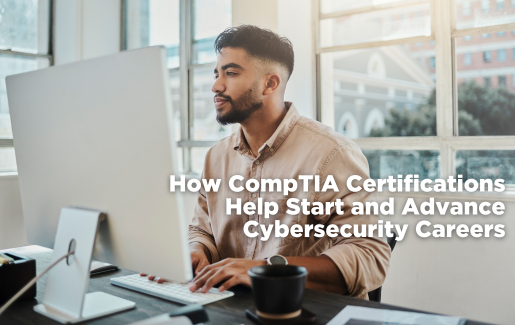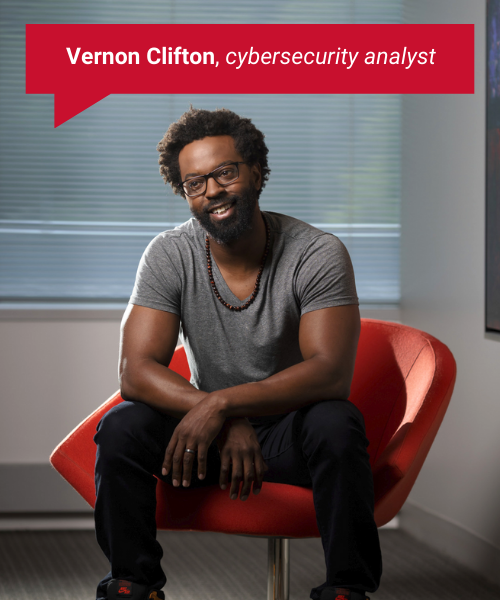 Cybersecurity is important. This isn’t new news. However, it’s vital to remember what cybersecurity is, why it is essential and what the world would be like without it.
Cybersecurity is important. This isn’t new news. However, it’s vital to remember what cybersecurity is, why it is essential and what the world would be like without it.
Why Cybersecurity Is Essential
There are a few key reasons why cybersecurity is important. First, we’ve been slowly but surely migrating to a digital world. Just about everything we do, from shopping and paying bills to connecting with friends and networking professionally, takes place online. This means we are becoming increasingly vulnerable to having our assets and identities compromised by hackers.
Second, IT manages the supply chains that provides what we need to live (think food and clothing). Without cybersecurity, our lives as we know them would change drastically and we would go without the things we need.
Thankfully, we live in a world where more and more IT pros are becoming highly skilled in cybersecurity practices. They have what it takes to keep networks and computer systems safe and secure so society can continue to flourish, and we can live our best lives.
One of CompTIA's missions is to help IT pros start and advance their cybersecurity careers. CompTIA sees the vital importance of cybersecurity and provides the certifications IT pros need to specialize in cybersecurity.
Starting and Advancing Cybersecurity Careers With CompTIA
Many IT pros have had help starting their cybersecurity careers with CompTIA. Some of these professionals are career changers, but CompTIA doesn’t just help people get their start in IT. It also helps current IT pros advance their cybersecurity careers. In fact, many use CompTIA certifications to climb the tech ladder, secure promotions and negotiate better salaries.
Eduardo Gijon, Scott Krager, Vernon Clifton, Juan Castillo and Vina Ta are prime examples of cybersecurity professionals who have benefitted from CompTIA certifications.
Meet Eduardo Gijon
 Eduardo Gijon, a veteran turned cybersecurity specialist, found himself becoming more and more interested in cybersecurity while watching the drama-thriller series Mr. Robot. While in the military, Gijon had learned some foundational tech skills. The superficial knowledge he learned from Mr. Robot (ethical hacking and penetration testing) were enough to prompt him to learn even more about IT by experimenting with tech tools and forensic suites.
Eduardo Gijon, a veteran turned cybersecurity specialist, found himself becoming more and more interested in cybersecurity while watching the drama-thriller series Mr. Robot. While in the military, Gijon had learned some foundational tech skills. The superficial knowledge he learned from Mr. Robot (ethical hacking and penetration testing) were enough to prompt him to learn even more about IT by experimenting with tech tools and forensic suites.
Later, Gijon enlisted in the Marine Corp and learned about troubleshooting by gleaning skills as a generator mechanic. He became a classified IT systems administrator after reenlisting in the Army National Guard. He earned CompTIA Security+ as he worked in this role, and it landed him a summer internship with AON Cyber Solutions.
“Having CompTIA Security+ has opened up opportunities I didn’t think were possible,” Gijon said. “It’s a requirement for many organizations, especially government ones, seeing as it’s a baseline certification.”
During his internship, he received a job offer as a cybersecurity specialist with AON Cyber Solutions, a dream job for many and one that has afforded him the opportunity to purchase a house. His ultimate career goal is to step into a consulting role within a specified practice.
Read More: Look at Me Now! Veteran to Cybersecurity Specialist
Meet Scott Krager
 Scott Krager is another career changer with an amazing story. Before becoming an information security analyst at Blain's Farm & Fleet, he was a personal trainer. Personal training and IT don’t have much in common, yet he established himself firmly in the tech space.
Scott Krager is another career changer with an amazing story. Before becoming an information security analyst at Blain's Farm & Fleet, he was a personal trainer. Personal training and IT don’t have much in common, yet he established himself firmly in the tech space.
During the start of the pandemic, Krager decided to earn CompTIA A+ to help him get his foot in the door. To earn this certification, he became an expert in time management as he already had a full-time personal training job, as well as a wife and 3 children. After a year and a half of studying, he took and passed his certification exam and was well on his way to a tech career.
Krager also earned CompTIA Security+ as part of a bootcamp related to cybersecurity, offered by Evolve Security Academy. Evolve Security Academy was impressed with his performance – so much so that he was invited to return as a teaching assistant. In addition to working as a teaching assistant, he interned at Evolve Security Academy for 5 months.
CompTIA Security+, plus his experience in cybersecurity, gave him a competitive edge. He secured his current role as an information security analyst in April 2022.
“CompTIA has built its brand, so people know what it's about,” he said. “You know CompTIA certifications are valued. You know you're learning a lot and you're getting something tangible for that learning, something you can speak to and put on a resume.”
Read More: Information Security Analyst Explains Why it’s Never Too Get Started in IT
Meet Vernon Clifton
 Vernon Clifton is another excellent example of someone who “changed dreams in the middle of the stream,” as Dolly Parton says, and switched to a career in cybersecurity. He started out as a salesperson at Cellular, and a good one at that. But he was ready for something different, and cybersecurity was his ultimate target.
Vernon Clifton is another excellent example of someone who “changed dreams in the middle of the stream,” as Dolly Parton says, and switched to a career in cybersecurity. He started out as a salesperson at Cellular, and a good one at that. But he was ready for something different, and cybersecurity was his ultimate target.
Clifton, health informatics technology cybersecurity analyst at Advocate Aurora Hospital in Downers Grove, Illinois, keeps hospital networks safe. He scrutinizes reports, looking for any hints of threats on networks. This helps him mitigate cyberattacks. He loves his job, but he admitted it wasn’t easy to come by.
Although Clifton was great at his sales position at Cellular, it barely scratched the surface of the tech work he really wanted to do. He wanted to get into cybersecurity and forge a new path in IT. To land a job in cybersecurity, Clifton headed back to school where he earned a bachelor’s degree in computer information systems. However, his degree wasn’t enough to get him a job in information security. He needed experience but was frustrated that he wasn’t being given opportunities to gain experience.
With CompTIA certifications, Clifton was finally able to escape the cycle of being offered only sales jobs and get into IT. He started out with CompTIA A+ and soon after earning it was rewarded with his first IT job. His next move? Getting into cybersecurity, which was of particular interest to him during his time earning his degree.
After facing the same issue of applying for cybersecurity jobs that were tough to get without direct experience, he earned CompTIA Security+. It made a huge difference. After getting his certification, he sent off 3 applications for cybersecurity jobs and was invited to an interview for each job. He soon secured his current job as a health informatics technology cybersecurity analyst.
“[That was] another really big confidence boost,” Clifton said. “Not only did I think I was good at this, not only did the certification prove that I was good at this, but an employer, a massive employer also thought that I'd be able to do that role.”
Read More: Overcoming the Experience/Employment Catch-22 With CompTIA
Meet Juan Castillo
 Juan Castillo, cybersecurity specialist, O’Neill Vintners & Distillers, had trouble getting into IT with a degree alone. He earned a bachelor’s degree in computer science and thought it would land him a tech job. That wasn’t the case.
Juan Castillo, cybersecurity specialist, O’Neill Vintners & Distillers, had trouble getting into IT with a degree alone. He earned a bachelor’s degree in computer science and thought it would land him a tech job. That wasn’t the case.
Soon after Castillo finished his degree and interviewed for a job, the interviewer posed a question: “Why should you be hired without certifications?” This employer was part of the 91% that believe certifications play a core role in the hiring process and can highlight the best and brightest job candidates.
“That pushed me to build my career around certifications,” Castillo explained. “At that time, I could have either gone to graduate school or pursued certifications. I feel that by earning the certifications I have now, I validated my skill set and work ethic to my employer.”
Something that Castillo loves about CompTIA certifications is that they are vendor-neutral. This gives them a broad focus. Currently, he holds CompTIA A+, CompTIA Network+ and CompTIA Security+.
“I’m in an industry where we’re constantly evolving and needing to change, and I need to understand all these different types of languages and the different software that are involved in IT,” Castillo said. “So, instead of seeking specialized IT certifications, I wanted to gain broader knowledge, which CompTIA certifications provide. I knew this information would enable me to speak to IT issues competently.”
Read More: The Wisdom of Building Your IT Career Around Certifications
Meet Vina Ta
 Vina Ta, cybersecurity specialist, Lordstown Motors Corporation, also said CompTIA helped her succeed in IT. Ta opted for a direct path to a career in tech. While she was earning a bachelor’s degree in computer science from Kent State University, she participated in two cybersecurity internships before stepping into the role of security operations center (SOC) analyst for Binary Defense. After working in that position for 2 years, she landed her current job.
Vina Ta, cybersecurity specialist, Lordstown Motors Corporation, also said CompTIA helped her succeed in IT. Ta opted for a direct path to a career in tech. While she was earning a bachelor’s degree in computer science from Kent State University, she participated in two cybersecurity internships before stepping into the role of security operations center (SOC) analyst for Binary Defense. After working in that position for 2 years, she landed her current job.
Ta has held two cybersecurity roles many IT pros aspire to. Earning CompTIA Security+ helped her get there.
“CompTIA Security+ gave me a baseline understanding of the different departments and roles within cybersecurity,” Ta said. “I value the certification because it doesn’t just focus on one specific criteria. You learn about many aspects of cybersecurity, such as identity access and security operations. I took the certification exam after I’d already been hired, when I had time to focus and study.”
One of the main reasons why Ta went after CompTIA Security+ was because she observed her peers getting certified. As she went through the certification process, she ended up discovering what she really loved about IT: People.
“In the process of studying for the exam, I found my true passion, which is in the people side of cybersecurity, such as security education and business. I love working with people and realized that as I prepared for my exam,” she said.
Read More: CompTIA Certifications: The Antidote to Imposter Syndrome
In addition to CompTIA Security+, which all of the IT pros above hold, CompTIA Cybersecurity Analyst (CySA+), CompTIA Advanced Security Practitioner (CASP+) and CompTIA PenTest+ are cybersecurity-specific certifications that can help you land a job in information security.
The Benefits of Working in Cybersecurity
The benefits of working in cybersecurity are plentiful. First, cybersecurity professionals are in high demand. In other words, they have great job security. The CompTIA State of Cybersecurity 2024 report shows there were over 660,000 job openings related to cybersecurity in the United States between May 2022 and April 2023. This shows an increase of 28% compared to the same time period in 2020.
Another benefit of working in cybersecurity is competitive salaries/benefits. Depending on what job you land, you could make a lot of money working in cybersecurity. According to the CompTIA IT Salary Calculator, the median salary for a cybersecurity specialist/engineer in the United States is $112,000.
Ready to get started? Learn the cybersecurity skills you need with CompTIA CertMaster Learn + Labs. Sign up for a free 30-day trial today!

